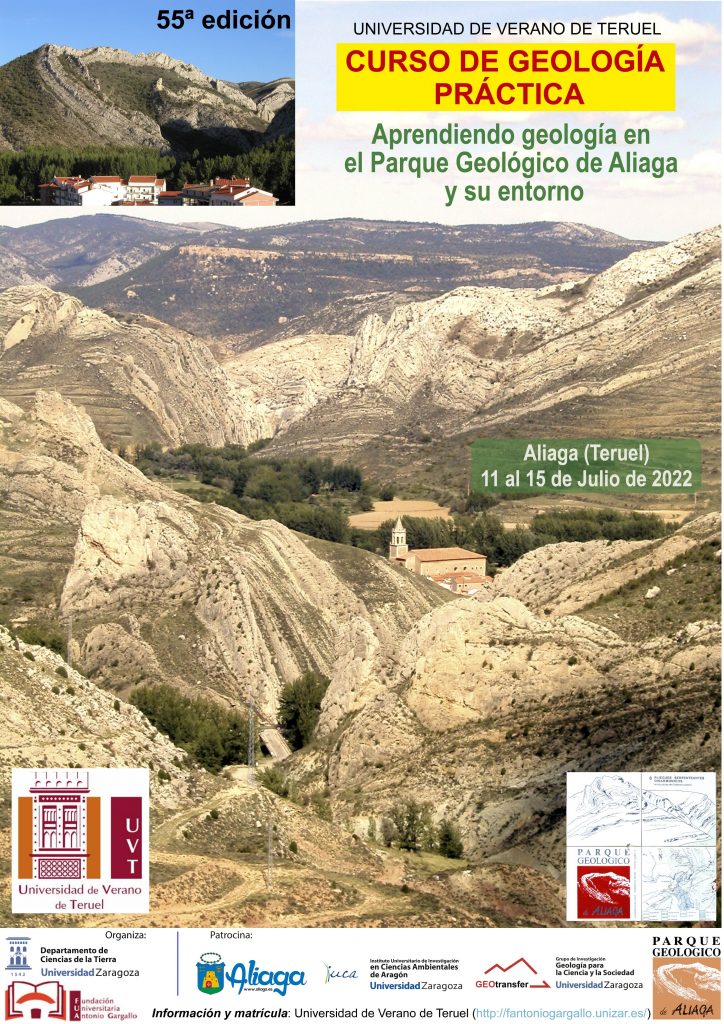Next July, the 55th edition of the Practical Geology Course entitled “Learning geology in the Aliaga Geological Park and its surroundings” will be held. The course will take place from July 11 to 15, 2022 in Aliaga (Teruel), directed by Carlos Luis Liesa, Professor at the University of Zaragoza and researcher of the GEOTRANSFER-IUCA group.
This course, developed within the framework of the Summer University of Teruel, is aimed both at undergraduate students in geology and related studies, as well as graduates and masters, teachers or future teachers of secondary education in natural sciences, or simply nature lovers.
The course combines theoretical and practical classes in the classroom and, especially, practical classes in the field in the emblematic environment of the Aliaga Geological Park. The course observes and analyzes the results of geological processes of a very diverse nature (paleontological, stratigraphic, sedimentological, tectonic, petrological, geomorphological…), which allow us to recognize and characterize the changing evolution of planet Earth.
Among the main objectives of this training are the management and application of basic work methods in Geology, especially for the recognition of materials in the field (lithology, sedimentary structures, fossil content…), the distinction of sedimentary units and the survey of the local stratigraphic column, the realization of cartographies and geological sections and the interpretation of said elements for the characterization of the geological history of a region; knowledge of the regional geology of the Iberian Cordillera, also of interest to learn about other geological units in Spain, and the imprint that geological processes and their superimposition over time produce on this Earth in evolution, on the geography, on the territory and in the development of human activity in the territory; the enhancement of some of the areas of geological interest in the province of Teruel, especially the Aliaga Geological Park, as a teaching resource and as a substantial part of the natural and cultural heritage, and making visible the role of geotourism in the development of environments rural areas and the teaching of geology to society or promote the communication of knowledge, experiences and points of view between groups (university and non-university professors, students, applied Geology professionals, people who love the natural environment and want to learn geology) and support pedagogical renewal processes.


